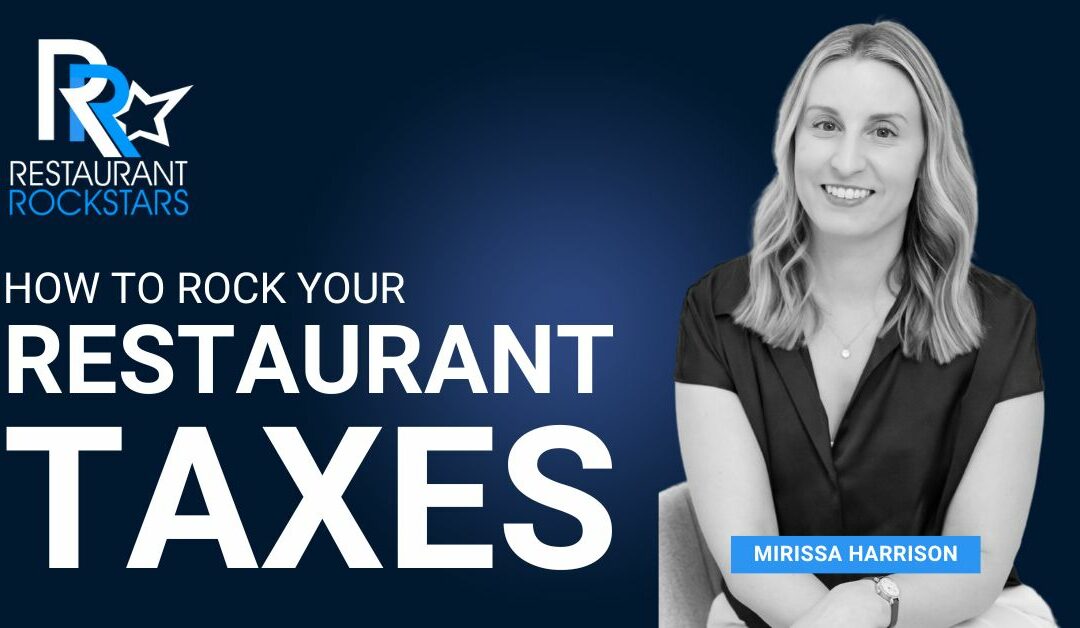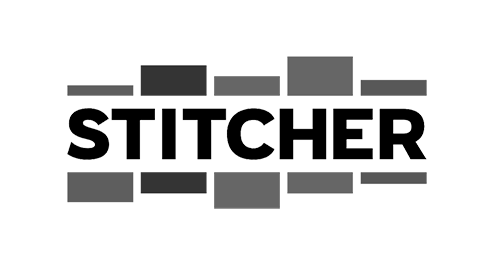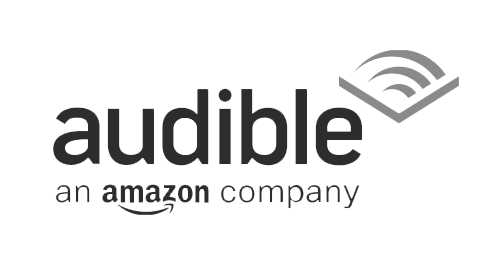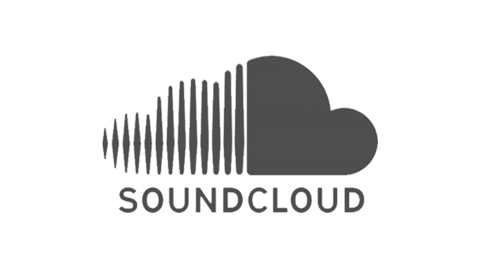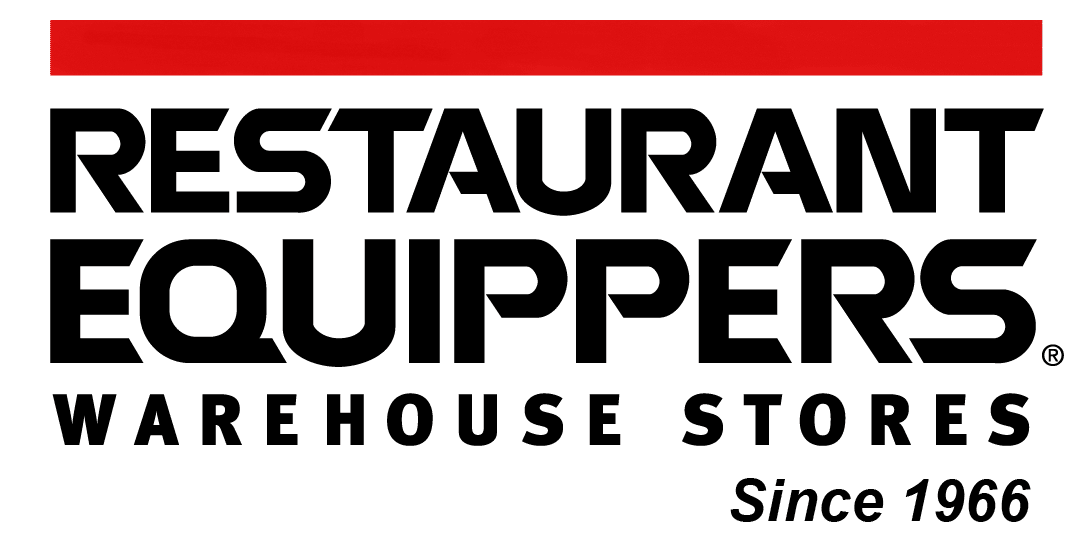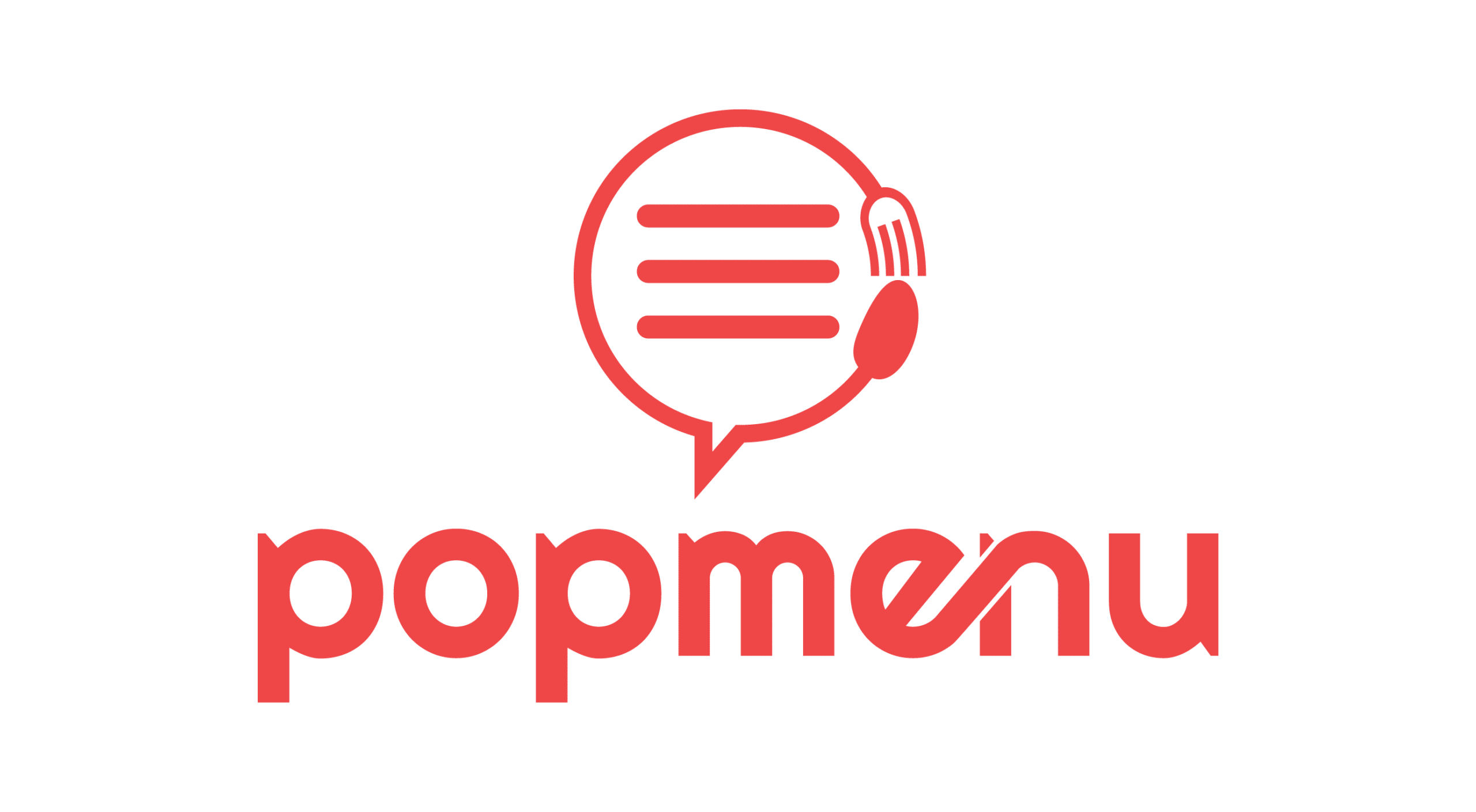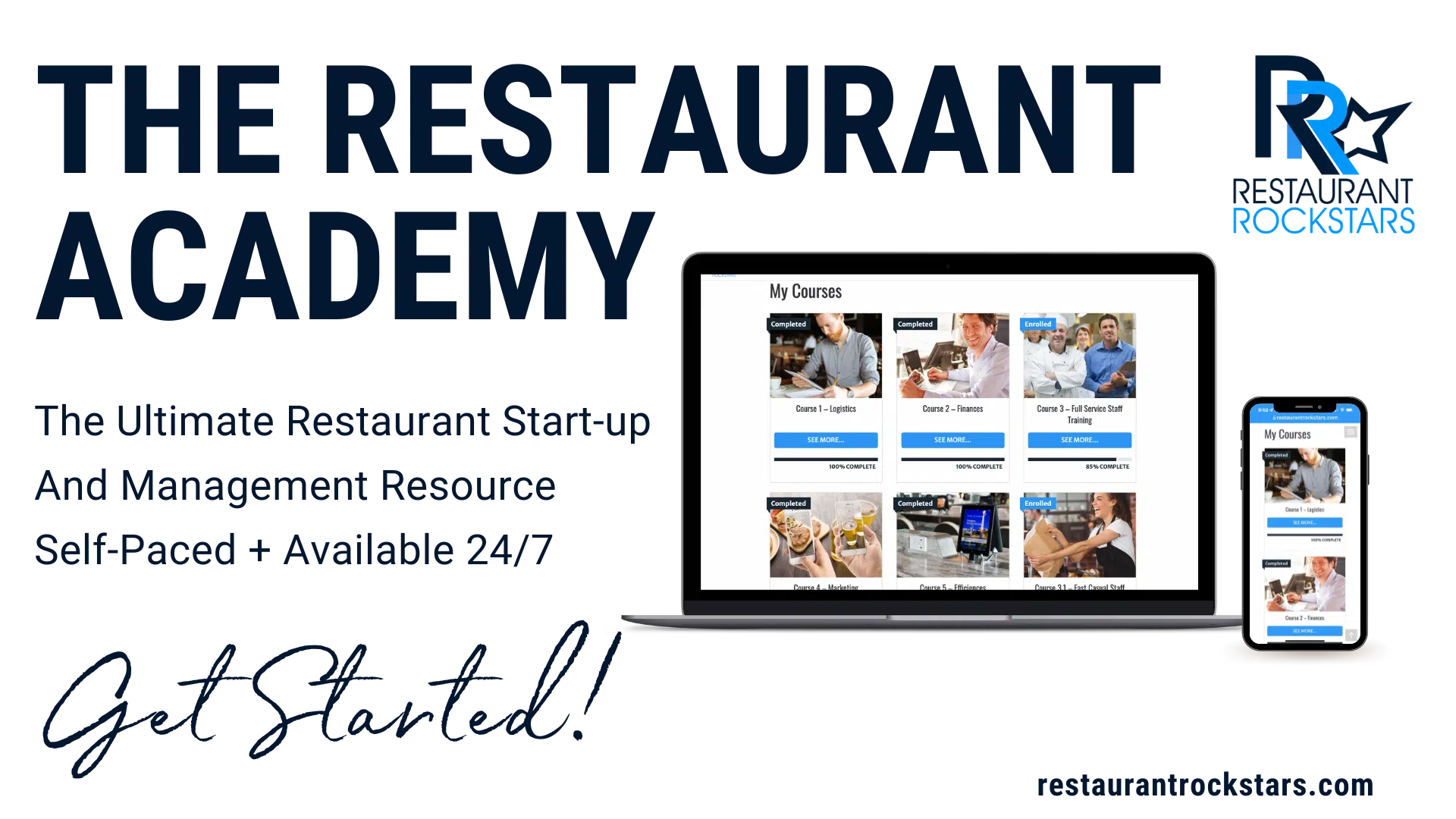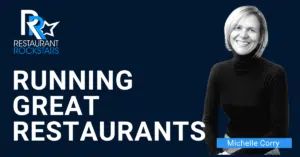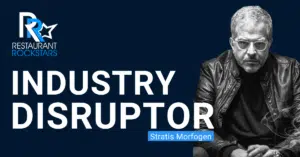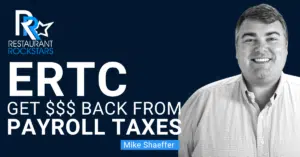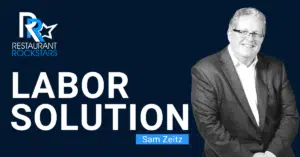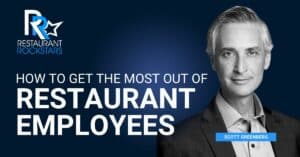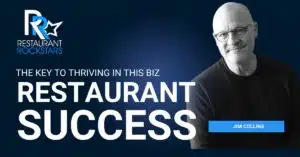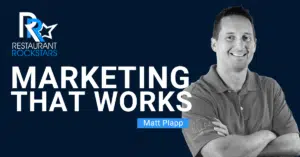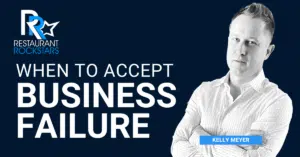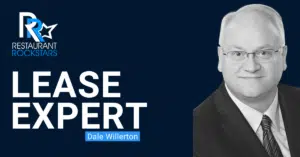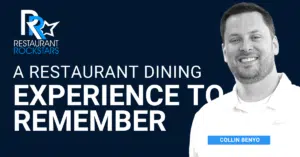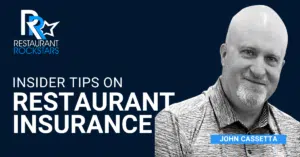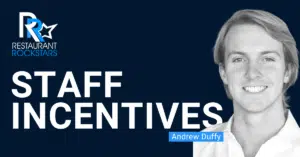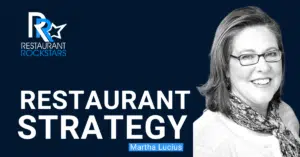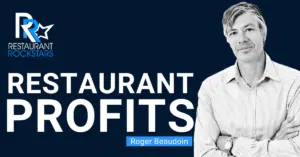Restaurant Rockstars Episode 379
Excellent Tips on Getting Your Restaurant Taxes In Order
LISTEN HERE OR ON YOUR FAVORITE PODCAST PLAYER
I get that running your restaurant is a total commitment, and business challenges never stop. Tax time is upon us, April is looming and Restaurant Taxes are due.
No worries, I’ve got your back.
Know that now is the time to get your financial house in order before you send the books to your tax preparer. It’s not too late to clean things up for your 2023 restaurant taxes, make some moves that will preserve your bottom line and put you in the best possible tax position.
In this episode of the Restaurant Rockstars Podcast, I’m speaking with Mirissa Harrison, a seasoned Certified Public Accountant with expertise in restaurant taxes and a passion to help you achieve your business goals.
Listen as we discuss restaurant taxes including:
- Mistakes that restaurants make when it comes to finances or running the business
- The basics of financial understanding and acumen to Improve your operation
- A crash course in restaurant financials and understanding the P&L, Balance Sheet, Cash Flow and Daily Break-Eve
- What you can do now to improve your tax position before you close the books on 2023
- Steps to take moving forward quarterly to reduce your tax liability
- The importance of “Basis” and what that means for owner compensation
- How to maintain checks and balances with your bookkeeper or office manager
This is solid advice, and I’m speaking from experience when I say that Marissa recently helped me get my books ready and in the best tax position.
Reach out to her and then go rock your restaurant…and your restaurant taxes! www.northpointfinancials.com
Roger
Welcome back to the podcast. Thanks for joining me. The timing of this episode is so relevant because we’re starting to think about taxes and that could be anxiety provoking for lots of us, especially if we’re not really intimate with our numbers. So this week’s guest is Mirissa Harrison and she is the founder and CPA behind Northpointe Financial Solutions.
Now I’ve recently had the opportunity to work personally with Mirissa . And it was a wonderful experience. She helped me with my QuickBooks and my accounting with some end of year planning and some help to put myself in the best position. So it’s really relevant in that we’re going to be giving you not only a crash course in basic finances in your restaurant, what’s the profit and loss statement all about, the balance sheet, the cashflow statement, as well as daily breakeven, but we’re going to be talking about things you can do now.
When it’s not too late, if you haven’t turned your books over to your CPA to prepare your taxes, we can still do some cleanup and some helpful things that are going to put you in a better tax position. You’re going to learn a lot and this is, again, perfect timing and highly relevant. Mirissa at Northpointe Financial Solutions is a wealth of experience and knowledge in not only accounting restaurant finances, she’s worked with restaurant clients before, but again, she’s going to give us some business solutions.
So you’re going to want to stay tuned. If you haven’t already, once again, head on over to restaurantrockstars.com/profits. I’m giving away the three ways you’re killing your restaurant profits, really thought provoking information that’ll help you improve your profitability, plus a bonus restaurant assessment, whether you’ve got a full serve restaurant or quick serve, fast, casual food truck.
Two different versions there, it’s all about a walkthrough of the things you should be paying attention to that can really move the needle on your bottom line, improve your operation, your efficiency, your staff training. Are you doing this? Are you doing that? Have you thought about this? Very powerful stuff.
And that’s all free at restaurantrockstars.com/profits. Thanks so much to our audience and thanks to our sponsors. Now on with our episode.
You’re tuned in to the Restaurant Rockstars Podcast. Powerful ideas to rock your restaurant. Here’s your host, Roger Beaudoin.
Rockstars, take it from me, as a former satisfied customer when I owned restaurants, Restaurant Equippers has built lasting relationships by serving independent food service operators just like you going on 60 years. They maintain an extensive inventory of equipment by all the top names at their huge warehouse stores in Ohio, Michigan, and New Jersey.
You’ll find everyday low prices in their stores by shopping equippers. com or by calling their National Order Office at 800-235-3325. Restaurant Equippers experienced specialists are standing by to help you get the best equipment and save dollars. Need it now? Thousands of name brand products are available for immediate store pickup or shipment.
Restaurant Equippers is a family owned business. When you need something, you need it now so you can be assured they’ll make sure you get the equipment and supplies you need when you need them. Have a unique need? Check with their specialists. Restaurant Equippers shops the world to find the best products and value at a price you want to pay when you need it.
Are you building a remodeling? Give Restaurant Equippers a call for all your equipment and supply needs or check their website, equippers.com.
Rockstars, not taking inventory is like leaving hundred dollar bills all over your restaurant. You just wouldn’t do that, so don’t leave inventory to chance. Listen, your inventory represents thousands, if not tens of thousands of dollars of food and beverage sitting in your business at any given time.
With so much chance for waste, spoilage, and loss, you really need to understand and manage all that value. Don’t mistake thinking that taking inventory is just figuring out next week’s order. That’s really just a small part of it. The most important piece is knowing and calculating the true value of all goods on hand to guarantee that your food and beverage costs are in line and staying in your restaurant’s sweet spot.
Listen, Sculpture Hospitality are the restaurant inventory experts. They’ve taken every restaurant’s pain point and made it simple, approachable, and accurate. They don’t just manage your food and beverage inventory, they give you a clear picture of your restaurant’s profitability. They have a range of service options to meet your needs and your budget.
From a hands on full service solution using one of their inventory experts, to a shared solution, or even a DIY, Sculpture Hospitality customizes the inventory solution to your operation. Take charge of your bar and restaurant inventory today. Get a free no obligation inventory consultation at SculptureHospitality.com/rockstar.
Welcome back, everyone. This is the Restaurant Rockstars podcast. So glad you’re with us. I’m super excited today. With me, Mirissa , how are you? Glad to have you on the show. I’m great.
Thank you so much for
having me. This is a relevant episode and it’s also very timely. Because so many small business owners are starting to think about, Oh, it’s tax time again.
And it’s a dread for a lot of small business owners and restaurant owners in general. And you’re here because it’s not too late to start thinking about how you can put yourself in the best tax position for the year. And also a lot of tips on what you can do during the year. To, stay on top of your financials and really understand them and not just pass it off to a bookkeeper or an office manager, but to really know, watch the cash coming in, watch the cash going out of your business and really having your finger on the pulse.
So that’s why you’re here. And I’m really happy to have you. For sure. I’m
so excited to talk about all this.
Excellent. You are a business advisor. You’ve got extensive accounting experience. You’re a CPA. You’ve worked for multiple firms and your goal really is to help business owners achieve their financial goals.
And again, Not everybody is really intimately familiar with their numbers, but it doesn’t have to be intimidating, right? It’s like numbers can be easily understood if you just know the basics. Do you want to tell us a little bit about what those basics might be? There are
so many, and you really hit it on the head with the bookkeeper or the office manager.
They’re in charge of that day to day record management and getting, just getting everything recorded so that business owner can digest those financials and understand them, whether that’s an outsourced person or an in house person. As long as the data is all captured, how can that data be used to make decisions, to invest more, to purchase more, financing, investors like we briefly have talked about in the past, profit margins and how that all impacts us.
Today and the future.
Just before we got on the call, you mentioned something about not working in the business. Let’s talk a little bit about what that means and what you suggest.
Yeah, I see a lot of small business owners, myself included, are in the business every day, working, putting out those fires.
It’s managing staff, HR issues, ordering everything, front, sometimes front of the house for your industry, back of the house, whatever that day needs to make that day successful. What I try to tailor my approach is to, with my clients is that you can’t work on your business if you’re in it every day.
Giving up that control and that delegation. It’s hard. It’s definitely hard. Trust is involved, responsibility so much, but you can’t improve and look at these finances, make these decisions if you’re in it, you’re in the thick of it every day. It’s definitely a hard concept for small owners to grasp because they’ve been doing it for so long.
Yeah. That’s a paradigm shift, and I love to, to have people take a fresh look at their business. And I always used to say, walk outside the front door and look at it as if you’re a customer or a guest and doing some housekeeping. But then it goes beyond that because to, to work.
On your business requires you to chip away in the beginning. Take an hour here and an hour there and separate yourself from what you did before. And that’s where leadership comes in because you mentioned the word delegation. I’m a huge believer in empowerment versus delegation and not being the boss, telling people what to do, but building and nurturing your team so that you can give them additional responsibility, which frees your time to then work on the systems that we’re now talking about.
Yeah. Yeah. That’s a great perspective. Yeah, so financial systems are vital. The profit margins in this business are slim. Our audience knows this and it’s frustrating when they’re working 24 7 and they’re missing their kids growing up and they’re wondering why is my bank account not growing?
Why am I stuck and tied to this business? It feels like a trap, but it’s not too late. Small steps now and really focusing on the numbers can be the key. to your future. I got a question for you, Mirissa . What mistakes have you seen, small businesses make when it comes to finances or running their business?
Is there anything that really stands out in terms of you shouldn’t be doing this, you should really be thinking about something else?
One of the biggest things is not separating personal and business. It’s hard in the beginning when you’re first getting started to have that whole separate account and that mindset of okay, business, personal, business, personal.
There’s so much Overlap gray area, if you will, but having those finances separate really is key to be able to analyze your business and look at those things. That’s the biggest mistake. That I see. The second would probably just be having that CPA or that tax preparer that you only talk to once a year.
You only talk to them once to file your taxes. I think the accounting industry is hard because of the volume. Accountants don’t have that time to dedicate year round often. Some of us are, that’s what we love to do. So we make sure that we’re in constant communication. Not speaking to us till the end of the year.
It’s it’s not too late, but it’s. It’s gonna be a surprise, the surprises are coming. What did, what happened for the year? It went by in a blink and you as the business owner never looked at the financials till it’s time to wrap it up and send it to me. So it’s hard when you’re, like I said, it’s hard when you’re in it.
I totally agree with you. Okay, this might be a perfect time to give our audience a little tutorial in basic accounting or basic finances. There’s certain profit and loss statements and balance sheets and cash flow statements and all these things. We’ve heard of as business owners, but we wouldn’t necessarily be able, a lot of us may not be able to define one from the next.
And if we could just go through some of these things as a brief explainer, let’s start about, let’s start with the P& L and the balance sheet and the differences between those two. One is a, this is how we’re doing. And then this is a snapshot of the assets and the liabilities of the company.
Let’s start with one and move through them all and give people a basic understanding of what they mean and why they’re there. Yeah, a profit and loss is your number one go to as a business owner. That’s where you analyze your margins your staff employee payroll, things like that.
That’s gonna be one of your biggest costs for sure alongside your cost of goods sold, but that’s where you can see, tied in with the cash flows. How much cash am I even bringing in? Where is it going? It’s going to the staff, it’s going to the cost of goods, it’s going to marketing, and whatever else it might be, professional services.
But you really need to know those gross profit margin, that, that percentage is One of the biggest decision making ratios you can look at especially for your industry, service industries all, all together. So that, that’s key for that statement. And
let’s talk about that for a second.
I don’t mean to interrupt you, but Let’s talk about gross profit, because gross profit is different from net income. So at the very top of a P& L we’ve got revenue and sales coming in, and then restaurants, their biggest expense. Sometimes labor and cost of goods are pretty equal, or one could be more than the other but essentially revenue comes in, and then you’ve got cost of goods going out, and then you subtract that from revenue, and you’ve got gross profit.
Okay, so hopefully your costs are in line and there are certain performance, key performance indicators, which we call, food and beverage costs, which are the cost of goods, which are really high expenses. So now you’ve got your gross profit, and then below that, the next biggest thing, of course, is your payroll, and then you’ve got a whole bunch of other expenses that you talked about.
And then your bottom line is really , your net income or your net loss. There’s general and administrative expenses. There’s, office supplies and all that sort of thing. You’ve got other operating supplies like the dumpster in the parking lot, and there’s a whole laundry list of expenses, but essentially, yeah, take it from there.
It’s that’s your bottom line and your bottom line means you’re either making money or you’re not making money.
Yeah, you’re right. That bottom line is the definition of whether or not you’re making money. The gross profit is a good analysis to look at for pricing structure changing, increasing prices, analyzing your vendors who you’re buying.
Food, linens, whatever it might be from those are the things that you can look at to, to improve that bottom line to go from a bigger picture outside the day to day, like looking at. Like you said, the dumpster. Okay, can we save a buck? Maybe, but is it worth it? Is it worth going through that process?
Maybe not, but what’s something that’s a little bit more, taking a little bit more from the business that we can really hone in on and try to pare down a bit. So that bottom line is also Hand in hand with taxes, that net income before and after a few adjustments, that’s what your taxable income is going to be.
But that gross profit margin is big for the service industry to analyze really pricing. Do we need to, do we need to increase our price?
Absolutely true. So let’s talk about the bottom line a little bit deeper because margins in this business. A lot of people understand that it’s a low margin business and before the pandemic, they said you were doing well if you could ring a 10 to 12 percent net profit on sales.
To break that down as simple as it is, that means for every dollar of sales, you’re literally making 10 to 12 cents profit. And that is an eye opener for a lot of people. And then the pandemic comes along and it dropped that dramatically. Now we’re in the five to eight percent profit range, even below five percent.
We’re trying to survive and it’s like, what do we do? And now I know my audience has survived the pandemic. We don’t need to go there again, but now is the time to really think about how do we improve our margins and our profitability? And there’s a limit to the amount that you can continue to raise prices with inflation, and you still have to offer value to your guests.
You really need to hone in on these financials because you could be leaving money on the table every day in terms of profit if you’re not strategizing this. So the bottom line is, okay if you’ve got a net income percentage, if you divide the expenses by total expenses divided by total revenue, it’s going to give you a percentage and that’s literally your profit margin.
If it even exists, right?
If you can analyze those expenses and really get that big picture of where this money is going that’s the only, not the only, that’s the best way you can look at the business and say, this is how we’re going to increase profitability.
We’re going to scale back on our marketing. Maybe we’ll just go hard on social media. for a little or cost. Versus paying an agency to promote you or whatever it might be, you’re not going to want to scrimp and save on advisor services. Your valued vendors, the quality, but those smaller things, how can we eliminate credit card charges?
How can we reduce that? How can, what processors are charging less rate? And they’re out there for
sure. That’s an excellent piece of advice. Shopping your vendors. on a routine basis. This is a business of relationships, and we get really comfortable with certain people we’ve done business with, but you got to understand these vendors are in the business of making money and increasing their market share and getting more customers, and yes, they work for your business, but they need to earn that business, and to keep them honest, you need to shop around your credit card processors and your vendors and all these things, and you could be saving percentage points on every single transaction and it’s huge.
I never took American Express for years only because it was a 4%, cut of every single transaction. My credit card volume was 85%. And I’m like, think of the money I’m leaving on the table if I took Amex. Because if I took it, people would use it. And over time, it’s like everyone else has another credit card in their wallet, a Visa or a MasterCard.
And the rate was half of what Amex was. And that’s just some simple thing you can do. But you’re pointing out. If you analyze your business on every piece of this and where you’re spending your money, you can save quite a bit. So I’m really glad you brought that up. Let’s move on to the balance sheet.
Give us an overview. Yeah, balance sheet is really indicative of your assets and your liabilities. You can see where the cash is, how much you’re expecting to receive, maybe. And then your liabilities, your debt. , who do you owe? Does your credit card carry a balance? Do you have a business loan from starting the business?
Most likely. Do you carry line of credits? Is there a balance on that line of credit? What’s the rate? Can we, like I mentioned earlier, can we shift that? Can we refinance it? What are these ways we can save a little bit, improve the way this balance sheet looks?
A balance sheet’s great if you want to show off, day to day. It’s not necessary, it’s not necessarily something I’d look at constantly, but if you want to bring on an investor, that’s what they’re asking for. Show me your balance sheet, show me your P& L. If you want to secure that financing to expand remodel, open a new, a second location, That’s what the bank’s going to ask for.
Show me your balance sheet. Are you carrying a ton of debt already? They’re not going to want to leverage you with more debt. So that’s a helpful piece in making decisions for financing.
Fantastic. Now, when I ran the business, the daily break even was really important. Understanding what it costs you to open the doors to your business every single day.
You turn the key in the lock, you walk in, you turn the lights on, you bring your staff in, you got goods on hand to sell, and there’s a certain cost involved. And whether you serve 10 customers that day, 100, or 1, 000, it’s that is a number. And I advise people, it’s Either you have a bookkeeper or an office manager, whatever it is.
You got an old fashioned file cabinet or everything’s on your computer digitally. It’s put a list together of all your expenses. Can you define fixed and variable costs for people? Definitely.
So a fixed cost is going to be more like your rent your cost of debt. That’s not really going to change.
It might change over the years, blah, blah, blah, but for the year, it’s probably a flat rate. Your variable costs are going to be, unfortunately, payroll, the turnover with payroll. Food for your industry is going to be the number one. And then variable costs are going to be things like we mentioned, credit card processors, some charge more than the others.
Some cards charge more than others. Variable things are things that you can more or less change on the drop of a dime. Fixed costs are more, this is we’re stuck with this. This is what it is for the year. The rent is what it is. Yeah, we can negotiate our next lease renewal, but that’s in three years, five years.
So that’s the kind of differential between those two and those are, like we said, the costs that we can analyze and look at and get that input on can we save a little bit? Can we, should we spend a little more sometimes on these things to, to improve that profitability in the end?
Yeah, I always looked at the fixed costs. You did a very good job of explaining the difference between the two. I used to think of it as, whether my business and during the pandemic was a good example because we had limited hours. So maybe a business is only open four days a week versus seven days a week.
And the fixed cost doesn’t care how many days you’re open, how many hours you’re open. If you’re open one day a week, you got to pay these things. Or if you’re open seven days a week, same thing. The variable, like you said, are the things that vary, like your payroll. You’re open four days a week, your payroll’s a lot less than seven days a week.
You’re not bringing as much food in, all those things. So thanks for clarifying that. How about the cash flow statement? That was something I never really needed until I wanted to sell my business and I wanted to show as much value and as much, I wanted to put my business in the best light and that one is a little bit more complicated.
It’s essentially cash in, cash out, but then there’s all these ad backs that show things that the new owner, if they’re buying your business. May continue or may put that money somewhere else. So can you give us a little bit of an overview of that one?
The cashflow statement has become my favorite recently.
It’s really an eye opener for small business owners. I’ve found that. It’s never run. It’s never looked at. A lot of people use QuickBooks or something similar, and that functionality is built into it, and nobody knows it. Nobody runs those reports. I’ve been running it monthly for a lot of my clients, and just showing them that at the end of the day, P& L when you have your net income, those adjustments are made for non cash items, depreciation, and a few other things.
But it breaks. The cashflow statement breaks it down into three separate sections. There’s the operations piece. The day to day, the revenue of the expenses, there’s the investment piece where did you purchase? I don’t know, a refrigerator? A walk in cooler? Did you invest in all that stuff?
And then financing. Did you finance? Did you spend a lot of money on, or did you incur a lot of debt and spend a lot on interest? And then at the bottom of that statement, it says, at the end of the day, whether the cash flow statement is run for a month or a year, at the end of that period, this is the cash that you brought in, or that you, that went out.
Again, by those three sections and then in total I’ve been providing that to my clients a lot recently to, to get a handle on that cash flow and cash management and be sure that when payroll runs the funds are going to be there, but you can also take a step back and look at, wow, I’m really leveraged by debt, I’m spending a lot on Financing this debt right now, maybe I need to shift my priorities to, not saving so much, but hammering down that debt, or, I really need to invest in, I can’t think of a big purchase for a restaurant industry, like I said, maybe a walk in cooler, I need to invest and repair this is the cash there, A, and B, and C, and D, can I shift it a little bit from operations more towards improvement or that investment?
Excellent, excellent points there. There’s a lot of expenses, aren’t necessary perhaps, or maybe they are. We had company cars in our business, and we had vacations that were related where we would do research to make the place. Better. And we gave employees bonuses and incentives and health insurance for them.
And those are all these add-backs that a new owner may say, Hey, I’m gonna redirect those funds elsewhere. But looking at that cashflow statement in its current state or place it’s in, you can make decisions where you say, suddenly, maybe it’s not such a good idea to do this anymore. Maybe you reallocate those funds and you wouldn’t necessarily know it unless you looked at it on paper on your computer screen.
So thanks for sharing. Yeah. Let’s shift gears and talk about the current state of the state, whether you have a bookkeeper or an office manager. We’ve all heard the horror stories of you let people get a little too close to your financials and then suddenly if you’re not watching, there are unscrupulous people in this world that have been Yeah.
So it’s one of those embarrassing, embezzlement cases that literally could crush or kill your business, and the money’s gone and they might catch that person, but it’s too late. It’s what are the pitfalls and what should you do to oversee someone so that you at least understand your financials?
And you don’t put yourself in a vulnerable position as someone you really think you can trust, but then something goes sideways
yeah. That becomes really hard and. There’s so much trust involved finding that good person, but like you said, it could be a facade almost, it could go on for five years and all of a sudden they realize that opportunities is there, no one’s looking over their shoulder.
So the number one, I think. That would be important is just having a set of checks and balances, someone makes the deposit run for the day, but someone needs to count, someone separately counts the cash then signs off whatever it might be, and that other person runs it to the bank.
They better match, having, that small piece in place, and then it just builds from there. Having an outsourced bookkeeper might provide more security than someone in house. At the end of the day, when the CPA gets all this stuff, they might look at it from an analytical mind and say, Whoa, what happened?
All your cash is like Vanishing. But sometimes we don’t have the time. It’s a matter of pumping out the tax returns. So having someone dedicated to analyzing the books and making sure that’s done is important whether, like I said, whether it’s you in the business every day, someone else in the restaurant or in the business or an outsource person having that trust is important, but you’ve to have that, that secondary.
some sort of second layer of security
Yeah, absolutely. One really simple thing we can do is if you have someone else making that bank deposit, the point of sale system obviously at the end of day prints out a report that separates credit card sales from cash deposits. And someone can’t necessarily manipulate the credit card sales, but they can manipulate the deposit.
So if you’ve got a record of that POS report, just randomly check that on any given day. Usually, the middle of the week or when people think no one’s looking, the busier days on the Saturday. I used to do it randomly, maybe on a Tuesday, maybe on a Saturday, I would either, we would keep all the deposit slips from the bank in a common place.
But then you look at your bank statement at the end of the month and then you pull a POS report from a certain day and then you look at that day on the bank statement of what the deposit was. And if those things don’t match, there’s a red flag for you. Little things like that are helpful with the check and balance.
Thanks.
Let me tell you about TOCK. TOCK is changing the way hospitality businesses do business. Our industry’s constantly changing, but TOCK’s industry first reservation platform empowers restaurant partners with the tools and support they need to adapt and thrive. With more than 500 years of combined industry experience, the team at TOCK takes great pride in applying their knowledge to solving the toughest problems faced by hospitality businesses.
That’s why TOCK shows up every single day, from flexible reservations to a first in class no show elimination suite. TOCK continues to innovate and evolve their product to equip restaurants with everything they need to bring their vision to life, now and in the future. Think of TOCK as a virtual marketplace that showcases everything in one place.
Restaurants can easily turn a table, a meal, or even a Tuesday night into an experience that they can sell and market on TOCK, driving revenue to every corner of their space. Ask a TOCK customer what they think about support, and they’ll rave about TOCK’s dedication and commitment to hospitality. TOCK has been actively championing the restaurant industry for a decade, and they’re just getting started.
Request a free demo today at https://www.joinTOCK.com/podcast
This year, give your team the gift of PopMenu AI Answering, a simple solution for phones ringing off the hook. AI Answering handles calls 24 7, 365 days a year, so your staff can focus on in person guests.
Customize your greetings and responses. Answer common questions. promote specials and events, and send follow up links to ordering and reservations. AI answering handles it all, while escalating more complex conversations back to your team. Now, never miss another tasty revenue opportunity. PopMenu is the marketing technology platform designed to make growing your restaurant easy.
Discover more A. I. restaurant tools that turn your to do list into an already done list. Request a demo today and my listeners for a limited time will get $100 off their first month, plus lock in one unchanging monthly rate. Go now to popmenu.com/rockstars. Again, get $100 off your first month at popmenu.com/rockstars.
Let’s talk about your expertise. Now, you are a CPA, and that means you’re a certified public accountant, and that means you’re so much more than a bookkeeper because you’ve got tax experience, you’ve got advisory experience, all these things, and you are definitely a necessary person several times a year.
One, in helping somebody get their books in order before they prepare their taxes, and then you actually Perform the tax return itself. So let’s talk about what can business owners first of all, the importance of working with a CPA during the year. You mentioned there’s certain times of the year where you guys get really busy and that’s certainly tax time, but what are the best times of year for someone to reach out and to really try to understand where we’re going before it gets too late for tax time?
Is there a best time of year? In my opinion,
yeah. Alright, tell us about that. For me, it’s gonna be my slow time. June through August, June, July, August restaurant seasonality is probably at a high, but for me, I’m at a low. But my biggest, little catchphrase is, I don’t want to surprise you in April, so please do not wait till November, December, and come at me with, hey, can I buy a truck?
We could have planned for a little bit better. So the best time to reach out to your CPA is going to be way before, long before year end.
Give us the time to check in, see where you are, look at the year to date, and project out a little bit, but also give you time to make those decisions. Don’t wait until December to say, I got some extra cash, can I buy a truck, should I buy a truck, how’s it going to impact my tax return? Yeah, I can answer all those questions, but if you don’t ask me with an appropriate amount of time to act on the decision, you’re going to get past year end, and it’s going to be tax time, and it’s You know, too little, too late.
We should have planned ahead. I’m gonna surprise you maybe with the tax bill in April, and I don’t want to tell you about that. It’s not fun for me. I don’t write the laws, unfortunately, and I just am the messenger. I can help you get the best, the best benefit and, make it advantageous for you with what you had done, but could we have planned for it?
Save for that cash management, for that tax payment a little better yeah, bought a truck hired more people, whatever it might be. Reaching out long before year end but also year end checking is great because we, like I said, we don’t want to surprise you with those tax liabilities in April if you were profitable for the year.
It’s not fun.
I’m really hoping we can help our audience now because I know a lot of people put this process off and even though, the year ended over a month ago, they haven’t closed their books out, they haven’t sent the information to their accountants or their CPAs, but yet certain things need to be cleaned up and really evaluated.
to put themselves in the best position. So could you give us some of the ideas of what some of those things might be? And is it too late if they suddenly say, Oh my God, help can I really fix this now before, it goes to tax time? Because people really are getting heated up with, taxes and preparing and they get overwhelmed with business right now.
But I want my audience to understand that, Hey, don’t take that for an answer. Really say, Hey, I need to get myself in the best position. Help. What would some of those things be?
Yeah, it’s definitely not too late. It’s gonna be a matter of help finding that help or yourself taking the time to do it. The biggest thing is being organized.
It might not necessarily mean having a pile of receipts like everybody thinks in a shoebox somewhere, big statements on hand, ready to go. If you did make those big purchases, you might need a little bit of detail on what they were, when you did it, and who you paid for it. So cleaning up your end is really about organizing, and if you can’t do it yourself, someone out there can help you, a bookkeeper, or maybe even your tax preparer.
They can help you clean that up. It’s Pros and cons of outsourcing and paying someone to do it or trying to do it yourself and using your time. But it’s definitely not too late. There are still tax moves you can make retirement plans, health savings accounts that you can take advantage of.
So you can’t necessarily. Go buy a truck and have it apply for last year, but there are still a little bit more tax benefits you could take advantage of. And then cleaning up books, it’s just like I said. You’re going to outsource that and have someone do it, or you’re going to take the time to do it.
Just be organized and be honest. If you go to your CPA and say, I tried. Just ask me everything you need to know. This is all my bank records, they were reconciled, they’re not reconciled. This is the credit card for the year, but it needs a little bit of
cleanup. Yeah, the reconciliations are pretty vital because that’s how your CPA can tie your exact cash to the amount that should be there as of December 31st.
Does the balance sheet at 1231 accurately reflect the reconciliation for that month? Now, one of the things that’s always thrown me first of all, my, my CPAs have always asked for the December closing reconciliation as well as the January closing. Reconciliation. That’s fine. But what’s always thrown me, Mirissa , is I’ve always been obsessed with maximizing my expenses to minimize my net income, and that always I had a little screwy thing with credit cards because I’ve got all these charges in December that don’t show up until the bill shows up in the middle of January and I’ve reconciled my December bank statement, yet all those charges that are 2023 expenses are literally being paid in 2024.
Is there a way to capture all that with some sort of an entry so that we can maximize those expenses because they are pertaining to 2023?
So you probably already are taking advantage of them if most restaurants run on what’s called an accrual basis. So those credit cards are run on accrual. You charge them in December, you’re charging these things at December 30, December 31, and they’re on the, captured on the card, but your credit card statement, like you said, runs over into January.
They’re still being captured in the 23 year. The reconciliation report is just off on dates. They’re still captured in your P& L on the date that you swipe that card. Sometimes there’s a day or two delay because of when they post to the credit card and. When it actually clears, but if you’re making these larger expenses in the last week of the year on a card and you’re on an accrual basis, you are expensing those for the 2023 year.
Your reconciliation, my credit card, it runs up to the 12th of the month. Who knows why? I don’t know, but if I swiped it on the 31st of the month prior, it’s in that month. My statement when I reconcile might be off a little bit, but if the statements are off, some accountants run the 1231 and then add one through the first through the 12th to see if that piece still reconciles.
And when we’re reconciling, We’re looking just to make sure that, like you said, all those things are captured nothing nefarious is happening, and just to make sure, like I said, everything is captured. We want completeness, we want accuracy and we want organization.
Excellent. Thank you so much. Here’s another biggie. Let’s talk about what basis means and how that’s impacting our financials.
Sure. Basis is a big topic. And it differs for the type of entity you are. Basis in an S corp indicates, it’s the big picture of the owner’s investment.
It’s, what they invested to start the business, any money they put into the business, any money they took out of the business as a distribution, and the day to day, the operations, the profits and the losses. At the end of a tax return, you have this basis schedule that says, this XYZ amount is what you initially contributed 5 years ago, 10 years ago, yesterday.
The cumulative total of profits and losses and the cumulative amount you’ve taken out. And then that’s the, that’s your ending number here. So that’s your investment in your
business, really. Gotcha. I was always surprised by that because when I owned restaurants, I had seasonal businesses, we, we cranked through the winter and then come April, we’re closed for eight months.
And there were times when I would take payroll. compensation, and then there was times my CPA would say, You can take distributions tax free based on available basis. And I’m like whoo hoo, I’m putting more money in my bank account now because the taxes aren’t taken out. So depending on, like you said I think you did a very good job of explaining that.
Whew, This is a question to ask your CPA. What is my basis and am I, can I take out distributions versus payroll if that’s a benefit to you? But you wouldn’t know unless you knew, you learned of it or you asked the question because your CPA should be your business advisor. That’s what you do for clients.
So that’s just one, one, one question perhaps to ask.
Yeah, and there’s a lot of hiccups you can make or mistakes you can make in the basis, in the regard of basis, so having someone advise on that’s really
key. Excellent. All right, let’s talk about month to month or even quarterly, because we started this conversation by saying, chip away at this one step at a time, understand your financials, get more involved so that you have your finger on the pulse of your money, but also no one that works for you can perhaps take advantage of you because one, they know you understand, and two, they might think, hey, this guy’s looking or this, this woman is looking at the books and understands where.
Things can happen. So how often should we look at financials? Should we be looking at them weekly, monthly, quarterly and, getting a better handle on it? And then what steps should we take to minimize our liability throughout the year versus, Hey, it’s, it’s December 15th and I better start thinking about my taxes or whatever, which.
Unfortunately happens in our game,
I know. I think quarterly is probably a good place to start. A lot of it comes down to spending the time doing it, but quarterly you can get a good picture on the past. If you’re a seasonal business that little That past blip, that little season and you know what the rest of the year is going to look like.
Is there cash there to survive the rest of the year? If you’re close, minimal hours are close for good, the month of January or whatever it might be. Quarterly is a good place to start. It gives you a good sense of, The moment in time and the year to date if you have the time, and what I do for most clients is monthly, I send them the monthly reports, whether or not we take the time to walk through them together or they look at them.
It’s up to them, but I send them monthly and then a few comments, Hey, this January to last January, revenue dipped a little bit. You probably already know that because you’re there every day and you’re in it, but just like getting it on your radar. I’m going to look at it again the next month and say, Hey, it’s dipping again.
After the third, fourth month you’re going to say, okay, why am I dipping four months in a row? What’s going on? What do I need to tweak here? So I definitely would say start quarterly. It all depends on your relationship with the bookkeeper or in house or outsourced, but if someone’s in house and they’re doing the books weekly, whatever it might be they’re gonna come to you, I think, I would hope, with, these little changes that they’re noticing.
The trouble with that is, if they’re not a trained bookkeeper they’re just surviving. They’re just doing what they can to make sure everything’s in there.
Absolutely. Now you have experience working with restaurant clients, and not every CPA does, and there are certain nuances about the restaurant business that it’s a real advantage to have someone who’s worked with restaurants before, because you can be a CPA that’s dealt with different industries, but they may not be able to help you.
A restaurant client based on really understanding the restaurant business. So I see that as a distinct advantage. I’ve only worked with I’ve worked with the same CPA firm forever, but they have extensive restaurant experience. And I found that they’ve helped me significantly where some other CPA, not to put down CPAs, but focus on my business.
They understood it. They talked the talk, they walked the walk and I’m like, wow, I feel peace of mind with that. So you have that experience. Is there Any benefits to filing an extension? A lot of people put this off and then all of a sudden, oh my God, it’s the beginning of April and it’s I’m not ready.
But then there’s certain penalties for filing late and all that kind of stuff. Let’s talk about some of those pitfalls or even if there is a benefit, if you’re just not ready. Yeah, there are a
few pros and cons I have a love hate relationship with extensions, I love them because the volume of work that we do just spreads it out.
The downside to extending is the extensions are an extension of time to file. They are not an extension of time to pay. Your tax liability is still due April 15th. April 17th, whatever it is, not in the fall. You just are extending your time to get your stuff together, get organized, clean up those books because you didn’t make the time you chose not to make the time or ran out of time.
So we, Preach that day in and day out to clients, and they do not often understand that the extension is only an extension of time to file, not to pay. We hate them in that regard because you need to know what you need to pay. So at that point, if you’re having 80 percent of the tax return done to get the business owner the taxable income and provide them an extension payment amount, why are we not just finishing the whole return?
And sometimes it’s not on us, it falls back on the business or the bookkeeper that it just hasn’t been done. And no harm no foul, it’s not gonna be the end of the world if we do extend and it’s nobody’s fault, but for us it’s hard to give that extension payment and get the bulk of the tax return done.
And prioritize everyone else that still is filing in April to get you an 80%, 90 percent completed tax return. And then we go on the back burner for the next six months until it’s fall again. And we say, hey, don’t forget, we’re going to follow up with you periodically and say, what’s the status?
Any progress? Can we get this done? Like I said, in our slow time, June, July, August. But, it’s inevitable that fall comes and we’re in crunch time number two here trying to pump out this, finalize this tax return. So there’s definitely some pros and cons but the biggest con is you still gotta pay in April.
Here we go, it’s right around the corner. I know it. Don’t mean to scare anyone, but our whole goal, obviously, in this is to tell you, hey, one. If you learn and understand your financials, you’re going to feel a lot more peace of mind around your business. Know that there are steps you can take to improve your business.
And you said it really well in the beginning about working on your business, not in your business. And I’ve always advised my clients and had a mantra. It’s don’t run a restaurant, run a business. And those things are completely separate, and that’s taking that fresh step back and saying, you know what?
I’m too close to this. I really want to get a bigger picture here. I want to empower my people to take on more responsibility, and I want to have the joystick at 30, 000 feet. I don’t want to be in the trenches every day, and it is possible to do that. You just need to shift your approach. We’ve covered a lot of ground today, Mirissa , but I’m sure I’ve missed a few things.
Is there anything else you want to share that sort of rounds out our discussion?
I think you’re spot on with the I don’t want to scare people. It’s not too late. But it’s a decision. It’s a business decision. Am I going to outsource this work? Or am I going to take it on myself along with all the other things it takes to run a small business?
Small definition is what you choose it to be. But, It’s that’s one business decision you have to make, another thing I tell my clients is you do what you do because you’re good at it, I do what I do because I’m good at it. If you’re running a restaurant, you do that. I wouldn’t have a clue how to.
I know how to do your tax returns, I know how to make your books clean, ask for help, contact your CPA more than you think you need
- I’m really glad we met. And I have to be transparent with our audience. It’s I met you recently, and I had a QuickBooks problem. And you just instantly made me feel comfortable.
And you instantly found the problem, and you were able to fix it. And you gave me peace of mind. And I said, you know what, there’s so much value to this. And I’d really love to introduce you to my audience. And you can share so much expertise and advice on what we can do to improve our business. So I was really happy to work with you.
Is there a way that our audience can reach out to you if they’re interested in either working with you or just getting some quick questions answered? How can they reach you? Yes!
Definitely. The best way to reach me is on my website, www.northplantfinancials.Com. I’ve got a contact form in there. My email address is
right on there.
Fantastic. That’s great. I’m going to put that in the show notes to this episode also, but can’t thank you enough for being on the show. Again, you shared your experience, your best practices, advice. I learned a lot. I know our audience did too. So thanks for being with us. Thank you so much. That was the Restaurant Rock Stars podcast.
Thank you so much to our audience for tuning in. Thanks to the sponsors of this week’s episode. We can’t wait to see you next time, so stay tuned and stay well.
People go to restaurants for lots of reasons, for fun, celebration, for family, for lifestyle. What the customer doesn’t know is the thousands of details it takes to run a great restaurant. This is a high risk, high fail business. It’s hard to find great staff. Costs are rising, and profits are disappearing.
It’s a treacherous road, and smart operators need a professional guide. I’m Roger. I’ve started many highly successful, high profit restaurants . I’m passionate about helping other owners and managers not just succeed, but knock it out of the park. I created a game changing system, and it’s filled with everything 20 years running super profitable, super fun restaurants.
Everything from creating high profit menu items and cost controls, to staff training where your teams serve and sell, to marketing hooks, money maximizing tips, and efficiencies across your operation. What does this mean to you? More money to invest in your restaurant. To hire a management team. Time, freedom, and peace of mind.
You don’t just want to run a restaurant. You want to dominate your competition and create a lasting legacy. Join the Academy, and I’ll show you how it’s done.
Thanks for listening to the Restaurant Rockstars podcast. For lots of great resources, head over to restaurantrockstars.com. See you next time.
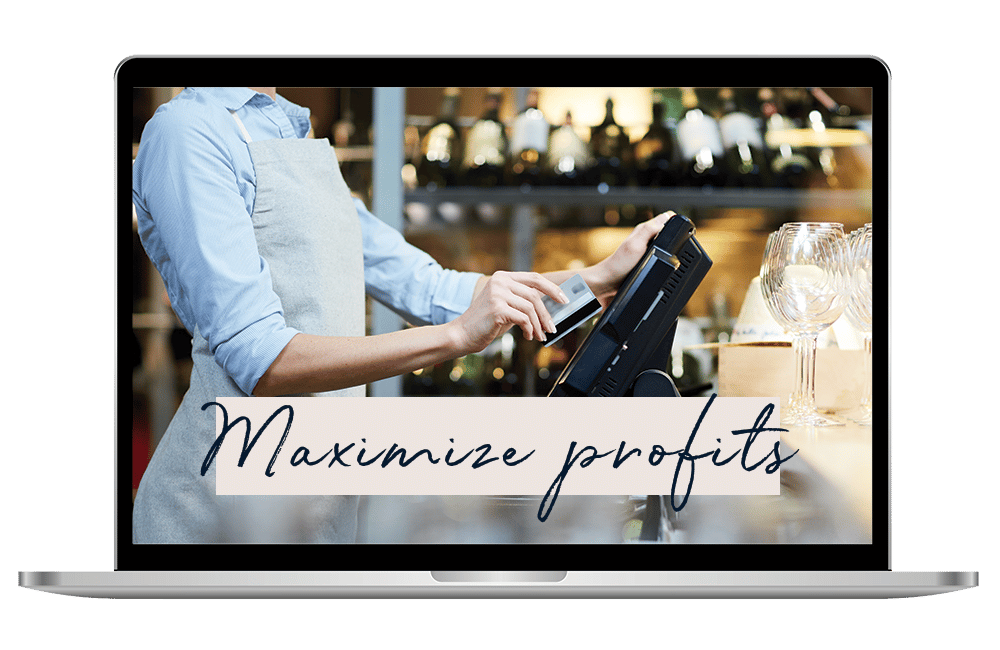
The three costly mistakes you could unknowingly be making?
Find out in this FREE guide and restaurant assessment specifically designed to reveal the unexpected hurdles standing between you and exponential business growth.
Thank You To Our Sponsors
Top equipment brands, extensive inventory, everyday low prices, and 60 years serving independent food service operators.
Increase restaurant sales, optimize guest throughput, and boost customer engagement all on one seamless platform.
Request a demo!
For a limited time only, popmenu is offering our listeners $100 off your first month plus an unchanging lifetime rate.
Request a DEMO:
Want to become a podcast sponsor?
Please get in touch with Roger at roger@restaurantrockstars.com

